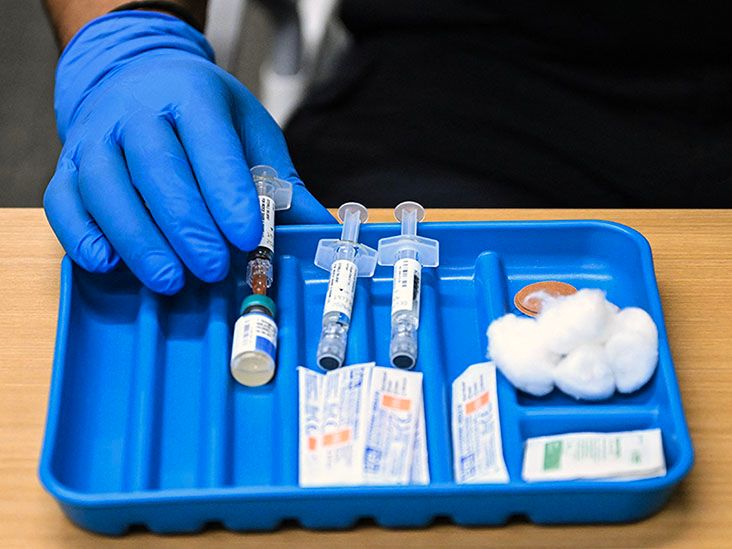In rare cases, hyperthyroidism may lead to congestive heart failure. This is because, in people with hyperthyroidism, the thyroid gland overproduces thyroid hormones, which can affect how the heart functions.
The thyroid is a small gland at the front of a person’s neck. It produces hormones that help control how the body creates and uses energy.
Congestive heart failure, which people may simply refer to as heart failure, occurs when the heart is unable to pump blood properly around the body.
This article explores the link between hyperthyroidism and heart failure in more detail. It also discusses other causes of heart failure and how doctors diagnose and treat it. Finally, it suggests when someone may need to speak with a doctor.

The thyroid gland helps regulate many processes in a person’s body. This includes heart rate. Changes in the levels of thyroid hormones can cause a person’s heart rate to increase or decrease.
If a person has hyperthyroidism, these hormones may signal the heart to beat too fast. This may cause a person to develop a rapid and irregular heartbeat.
A
- increased cardiac output, which is the amount of blood the heart pumps in a minute
- increased systolic blood pressure, which is the force of blood pushing against the artery walls as the heart beats
- rapid heart rate
- irregular heartbeat
Researchers note that these symptoms may cause heart failure, which can be fatal.
Another 2023 review lists thyrotoxicosis as a
A
The
- previous heart attack
- abnormal heart valves
- cardiomyopathy
- myocarditis
- congenital heart disease
- arrhythmia
- severe anemia
The
- being 65 years old or over
- family history of heart failure
- smoking cigarettes
- eating an unhealthy diet
- heavy alcohol intake
- taking recreational drugs
- lack of exercise
- atrial fibrillation, a type of arrhythmia
- heart or blood vessel disease, severe lung disease, or infections like HIV or SARS-CoV-2
- other long-term conditions, including:
- having cancer treatments, such as chemotherapy or radiation therapy
- having Black or African American heritage
A doctor may diagnose heart failure using
Blood tests
A doctor may take a sample of a person’s blood and send it to a laboratory. Laboratory technicians can look at a person’s blood and check the levels of certain molecules, like brain natriuretic peptide. These levels may increase if a person has heart failure.
Imaging tests
A doctor may request echocardiography to check a person’s ejection fraction. This is the percentage of the blood in the left ventricle that is pumped out during every heartbeat. A doctor may also request a CT scan, MRI, nuclear heart scan, or coronary angiography. These tests allow a doctor to see images of a person’s heart.
Other tests
A doctor may also measure a person’s heart rate using an EKG. Additionally, they may ask a person to wear a heart monitor for 24 to 48 hours. A doctor may also use a stress test to see how a person’s heart works during physical activity.
The NHLBI notes that there is
- reducing sodium intake
- maintaining a moderate weight
- exercising regularly
- quitting smoking, if applicable
- limiting or avoiding alcohol
- managing other underlying conditions where possible
- getting good-quality sleep
- managing stress
A doctor may also prescribe certain medications to treat a person’s heart failure, such as:
- diuretics and aldosterone antagonists, which remove extra sodium and fluid from the body
- angiotensin converting enzyme (ACE) inhibitors and angiotensin receptor blockers (ARBs) to relax blood vessels
- beta-blockers and ivabradine, which slow heart rate
- sodium-glucose cotransporter-2 (SGLT-2) inhibitors to lower blood sugar, blood pressure, and more
- glucagon-like peptide (GLP) agonists to reduce blood sugar, the risk of heart attack, and more
- digoxin, which helps improve heartbeat strength
The exact treatment will vary depending on each individual.
The
- dry, hacking cough
- worsening shortness of breath during activity
- increased swelling in ankles, feet, or legs
- sudden weight gain of more than 2 to 3 pounds (lb) in a day, or 5 lb in a week
- discomfort or swelling in the abdomen
- difficulty sleeping
A person should seek immediate medical attention if they experience any of the following:
- frequent dry, hacking cough
- shortness of breath at rest
- increased swelling or discomfort in the lower body
- new or worsening dizziness, confusion, sadness, or depression
- loss of appetite
- increased difficulty sleeping
- inability to lie flat
Research indicates that there may be a link between hyperthyroidism and congestive heart failure. If hyperthyroidism progresses to thyrotoxicosis, it can cause symptoms that increase the risk of heart failure.
Without treatment, heart failure can be fatal. If a person notices any sudden or severe signs of heart failure, they should seek immediate medical attention.


